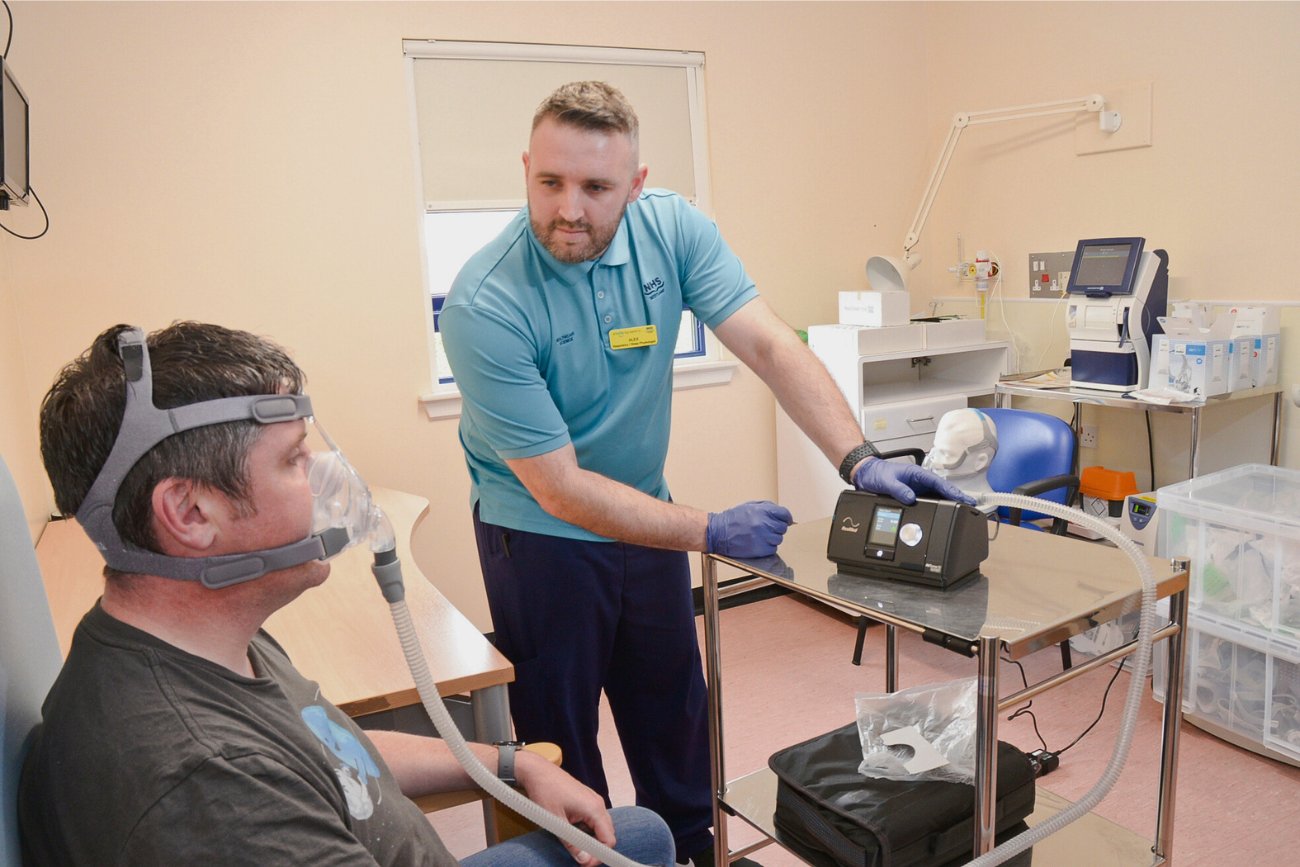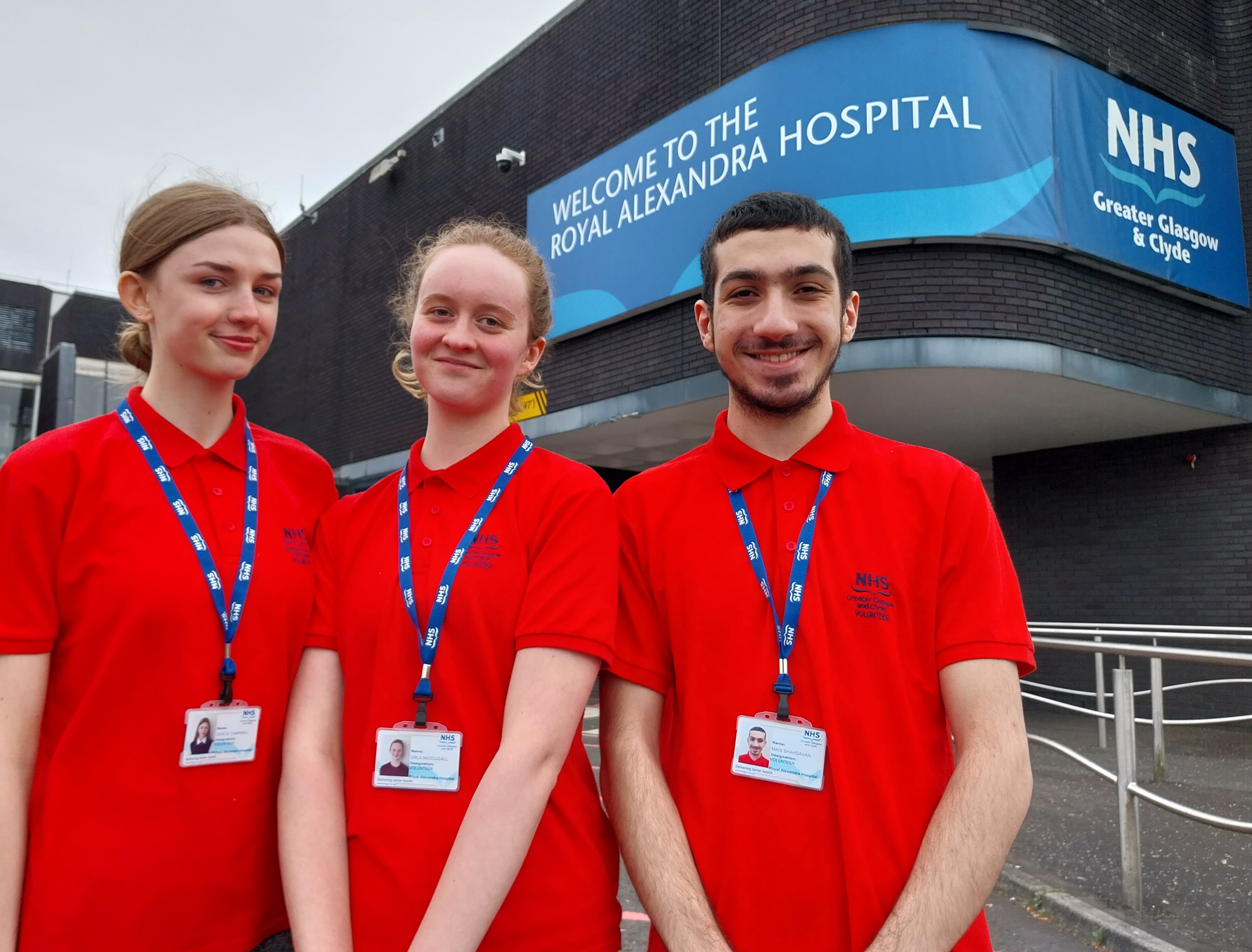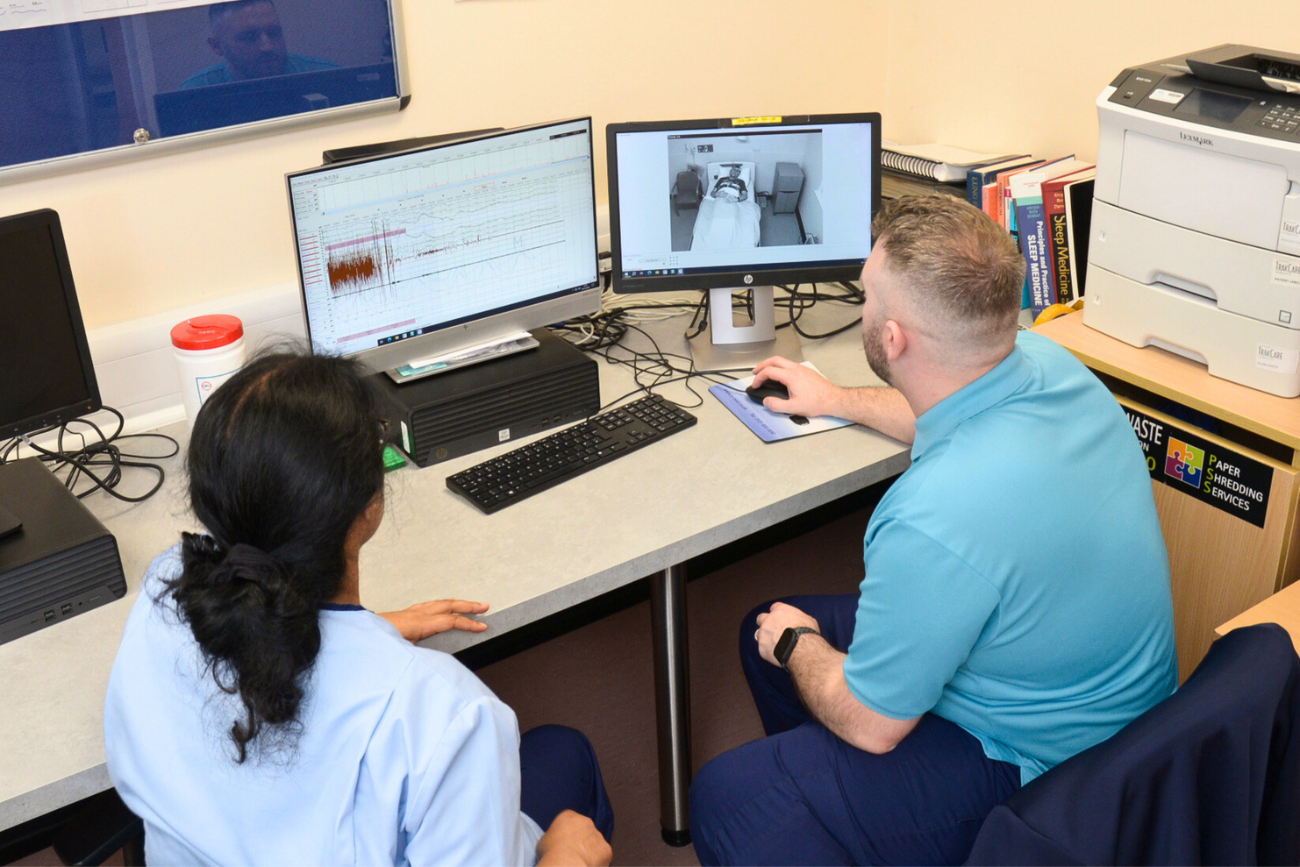Previous
Respiratory physiologist
You’ll need to apply for trainee opportunities on our recruitment website to become a sleep physiologist. There are different training options, including undergraduate-level and in-house training programmes, depending on your experience and qualifications.
Sleep physiology practitioners help people to improve the quality of their sleep. They investigate, diagnose, and treat sleep disorders using monitoring devices and specialist equipment.

If you’re interested in a career as a sleep physiologist, useful school subjects include:
Speak to your guidance teacher or careers adviser about subjects offered at your school.

You may find it helpful to get some healthcare experience by doing a work placement or volunteering. You’ll get training, increase your knowledge, and learn new skills. This could help you when applying to college, university, or a new job with NHSScotland.
One route to becoming a sleep physiologist is to complete an undergraduate honours degree programme at SCQF level 10 before applying for training opportunities in the NHS.
Some UK universities offer an undergraduate degree in Healthcare Science (Respiratory and Sleep Physiology). Other related science degree subjects include:
Search for undergraduate science degree programmes on My World of Work.
As a trainee, you’ll complete a 3-year practical and theoretical training programme. You can then register as a healthcare science practitioner with the Academy for Healthcare Science (AHCS).
Some health boards offer alternative work-based training programmes if you already have an undergraduate honours degree in a related science subject at SCQF level 10.
As a trainee, you’ll complete a practical and theoretical training programme. You can then register as a healthcare science practitioner with the AHCS.
You can apply for training opportunities on our recruitment website.
The Academy for Healthcare Science (AHCS) maintains voluntary registers for healthcare science professions not covered by statutory registration and regulation. These registers are accredited by the Professional Standards Authority for Health and Social Care (PSA).
When you qualify as a cardiac clinical physiologist, you can register with the AHCS as a healthcare science practitioner.
Find out more about the Academy for Healthcare Science.

As a sleep physiologist, you’ll monitor patients who experience poor sleep quality by using remote monitoring devices or doing overnight sleep studies.
Your investigations will identify conditions that may require treatment and long-term management, including:
You’ll also treat other medical problems that impact or complicate sleep or breathing disorders.
The different types of tests you would do include:
You’ll use specialised equipment and monitoring devices, including:
You’ll need these skills:
You could work with:
As a sleep physiologist, you might work in:
Once you’ve become a registered sleep physiology practitioner, there are ongoing requirements for continuous education and skills development. You’ll have lots of opportunities to go further and learn more.
With training and experience, you could move into a specialist, advanced, or management role, such as a sleep physiology service manager.
Sleep physiologists can apply to become clinical scientists to progress in their careers.
If you already have significant professional NHS experience in sleep physiology or have completed a training programme that does not directly lead to registration as a clinical scientist, you can apply for equivalence recognition.
It is a route you can take to demonstrate that you already have the skills, knowledge, and experience to become a clinical scientist in sleep physiology.
You’ll submit a portfolio of work to the AHCS or the Association of Clinical Scientists for assessment and attend an interview. If successful, you can register with the Health and Care Professions Council as a clinical scientist.
Find out more about clinical scientist training and equivalence recognition on the NHS Education for Scotland Healthcare Science website.
Once you become a sleep physiologist, you can register with the Academy for Healthcare Science (AHCS).

Discover the range of healthcare science careers you can choose in the NHS.
Healthcare science
Our blog includes how-to guides, case studies, and career resources.
Discover more